- Home
- Ko-pick: Recommended Korean Remakes of Foreign Films
- by KoBiz / Dec 20, 2024
Remaking Korean films for overseas markets has often seen poor results with titles such as Spike Lee’s Oldboy (2013) and the US remake of My Sassy Girl (2001). When it comes to Korean films that are remakes of foreign titles, however, it’s a different story.
Although not every remake strikes a chord with local viewers, it has proved to be a successful formula at the Korean box office over the last decade. Cold Eyes (2013), a remake of the Hong Kong film Eye in the Sky (2007) was a resounding success, as was Lee Hae-young’s Believer (2018) that was a remake of Johnnie To’s Drug War (2012).
Indeed, 2018 was an interesting year for remakes with Lee Jae-kyoo’s Intimate Strangers (2018) (based on the Italian film Perfect Strangers (2016)), Lee Kwon’s Door Lock (2018) (a remake of the Spanish movie Sleep Tight (2011)), The Vanished (also based on a Spanish film, The Body (2012) along with the aforementioned Believer.
The trend has continued. In 2022, for instance, two remakes were released on the same day (October 26): Confession (2022) (based on the Spanish film The Invisible Guest (2016) and Remember (2022) a remake of the Canadian film of the same name starring Christopher Plummer.
This year, there have also been several remakes: Hear Me: Our Summer (2024) (a remake of the Taiwanese film, Hear Me (2009), Hidden Face (based on the Spanish film The Hidden Face (2022)), Pilot (a remake of the Swedish film Cockpit (2012)) and Handsome Guys (based on the Canadian horror-comedy Tucker & Dale Vs. Evil (2010).
Korean directors have long been influenced by world cinema but perhaps what differentiates them is their ability to find their own voice in telling local stories and discovering new ways to inject the narratives with surprises and innovation.
Owing to the ever-increasing number of remakes that is once again becoming a trend, this week we will explore some of these titles beginning with this year’s films: Hidden Face, Hear Me: Our Summer, Pilot and Handsome Guys. It will then turn to other films released over the last eight years: The Vanished (2018), Intimate Strangers (2018), Heart Blackened (2017) and Luck-Key (2016).
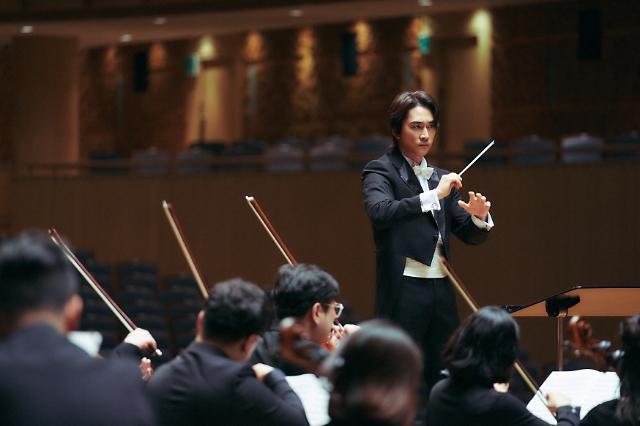
Hidden Face (2024)
Kim Dae-woo’s Hidden Face takes quite a different form to the Spanish original film of the same name as it follows a conductor (Song Seung-heon) who is engaged to a cellist, Soo-yeon, (Cho Yeo-jeong) in his orchestra, but she suddenly vanishes leaving a video message. As he attempts to get over her disappearance, he falls for Mi-Joo (Park Ji-hyun) who takes Soo-yeon’s place in the orchestra.
The remake that is written by filmmaker Roh Deok (A Very Ordinary Couple (2013)) and writer Hong Eun-mi (Missing (2016)) focuses more on the female characters and their relationship with the conductor playing more of a supporting role, which adds a different dimension compared to the original.
Similar to Following and Handsome Guys (two features that broke even this year), the film has slowly built steam since its release accumulating close to one million admissions. Although it might miss its break-even point of 1.4 million tickets, it’s poised to perform well on VOD.

Written and directed by Jo Sun-ho (A Day (2017), Hear Me: Our Summer, it follows the Taiwanese original quite closely with much of the film done in sign language. The story centers on a young man in his 20s, Yong-jun (Hong Kyung) who delivers lunch boxes helping his parents’ small business. When delivering lunchboxes to a swimming pool one day, he sees a group of deaf athletes training. He takes notice of a young woman, Yeo-reum (Roh Yoon-seo) helping her younger sister (Kim Min-ju) becoming a professional swimmer.
Yong-jun is able to communicate through sign language and the pair soon fall in love but Yeo-reum realizes this comes at a cost because she is spending less time with her younger sibling. She has come to a place where she has to decide whether she can follow her own dreams and desires or remain focused on her sister’s future.
The film made its premiere at the Busan International Film Festival before its release in November accruing close to 800,000 tickets playing in cinemas over several weeks. Like Hidden Face, it is close to reaching its break-even point at 1.2m and, therefore, should turn a profit having also been pre-sold to territories in Asia including Taiwan, Hong Kong and Japan.
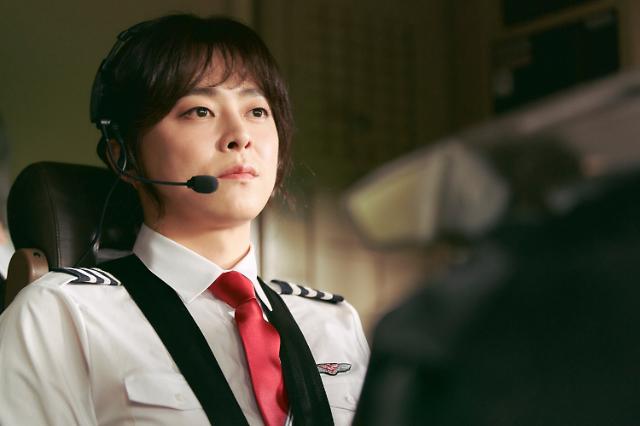
Released this summer was Kim Han-gyul’s Pilot (2012), a cross-dressing comedy based on the Swedish film helmed by Mårten Klingberg. It follows a high-profile pilot (Jo Jung-suk) who loses his job after he makes a sexist comment that goes viral and disguises himself as a woman as he attempts to get hired again. It works and the pilot is once again in the news when he successfully lands a plane after it experiences difficulty. But given his return to fame, it only becomes a matter of time before his real identity is discovered.
While it does deal with themes of gender disparity focusing on an industry that remains male dominated, it does so not through hard-hitting realist drama but like the original through effective comedy that highlights the very real prejudices women face in the workplace.
The film, which also features Lee Ju-myeong, Han Sun-hwa and Oh Min-ae went on to pull in over 4.7 million viewers to become the most successful film of the summer.
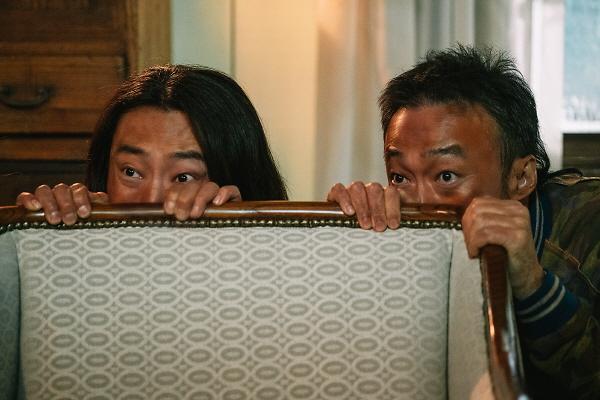
After explosive word-of-mouth, Handsome Guys would become one of the most talked about films of the year. Directed by Nam Dong-hyeop, it’s based on Eli Craig’s also much-admired Tucker & Dale vs. Evil (2010) and follows a similar plot centering on the eccentric duo of Jae-pil (Lee Sung-min) and Sang-goo (Lee Hee-joon) who are eager to begin a new adventure in their recently purchased decrepit country home.
Their scruffy appearances and unusual behavior attract the attention of the local police and when they try and save a woman (Gong Seung-yeon) from drowning, they are assumed to be kidnappers sparking off a series of wacky, horrific, and comedic events.
While the remake is also a mesh of different genres – from horror to comedy – it differentiates itself from the original with the police led by Chief Choi (Park Ji-hwan) playing a larger role, while some of the scenes are played out differently both inside and outside the derelict house.
Screening over a period of several weeks with dozens of GVs (guest visits) by the director and cast to help build momentum, the film went on to sell 1.7 million tickets. Following the success of the Korean remake, Tucker & Dale vs. Evil finally went on theatrical release at the end August 2024 in Korea where viewers could watch both films back-to-back.
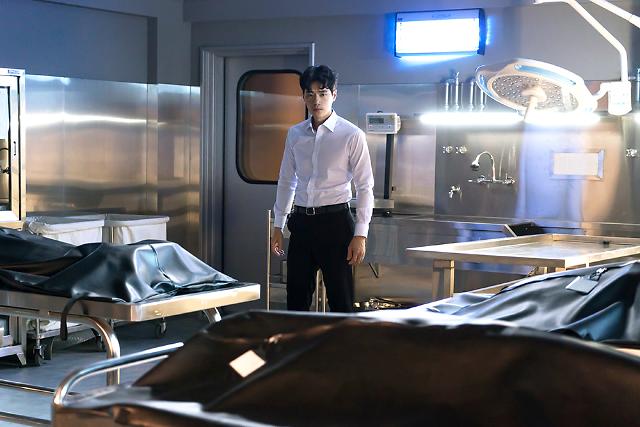
Helmed by Lee Chang-hee in what was his feature debut, The Vanished (2018) is based on The Body by Oriol Paulo. It’s about a mystery surrounding the death of a woman (Kim Hee-ae) whose body disappears at a government morgue (National Institute of Scientific Investigation). Leading the case is detective Woo Joong-sik (Kim Sang-kyung), and the man at the centre of the investigation is the woman’s husband Park Jin-han (Kim Kang-woo). As the case unfolds, there are some unexpected twists.
One of the most iconic genres in Korean cinema is the thriller that has travelled far and wide and is now evident on streaming platforms with titles such as Doubt (2024). While The Vanished does feel quite familiar not least with Kim Sang-kyung (Memories of Murder) playing a detective, it’s a genre film that has enough of the thrills to entertain fans of Korean genre cinema.
The film was invited to the Fantasia International Film Festival in 2018 and attracted 1.3m viewers.
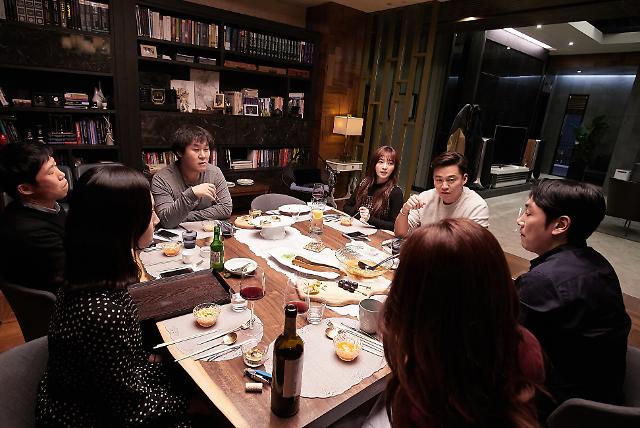
Intimate Strangers directed by Lee Jae-kyoo is a remake of the 2016 Italian film Perfect Strangers by Paolo Genovese. It features a host of names: Yoo Hae-jin, Cho Jin-woong, Lee Seo-jin, Yum Jung-ah, Kim Ji-soo and Song Ha-yoon. Married couple Seok-ho and Ye-jin (played by Cho Jin-woong and Kim Ji-soo) invite their close friends to a dinner at their new home. To add some spice to the menu, they decide to play a game: they all must put their calls on loudspeaker and reveal any message they receive. It’s not long before some hidden secrets are revealed potentially destroying the relationships among them.
Shot in just three weeks, it’s a film that connected with Korean audiences accruing 5.2 million admissions. Although the ideas for its plotting come from the original, Bae Se-young’s (Extreme Job (2018)) script is cleverly written to critique how smartphones are at the centre of our lives – and how we are dependent on them – along with a look at gender and relationships in contemporary Korean society.
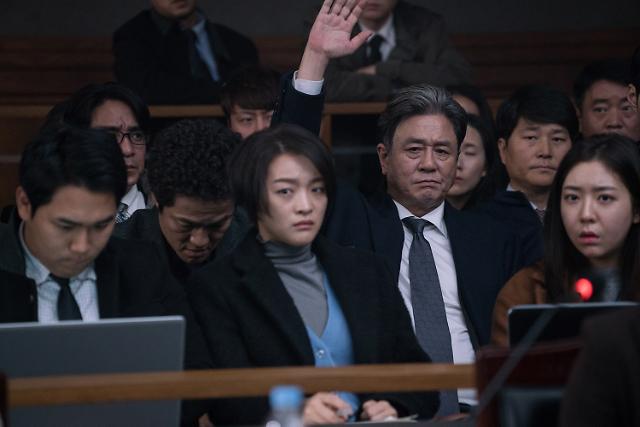
While there have been several Korean features that are based on Hong Kong films, it’s less common for contemporary Korean titles to be remakes of films from mainland China – though there are Chinese remakes of Korean films such as My Love (2021) (based on On Your Wedding Day (2018)), The Witness (a remake of Blind (2011)) and the aforementioned 20, Once Again!.
One instance, however, of a Korean film based on a Chinese feature is Jung Ji-woo’s Heart Blackened, which is a remake of Silent Witness (2013). It centers on the story of a business tycoon (Choi Min-sik) whose daughter (Lee Su-gyeong) is the prime suspect when her father’s fiancé (Lee Hanee) is killed. It also stars Park Shin-hye, Ryu Jun-yeol in what is an electric cast.
Jung who is a respected filmmaker in the industry having helmed Happy End (1999), Eungyo (2012) and 4th Place (2015) brings his deft craftmanship in what is a riveting crime drama.
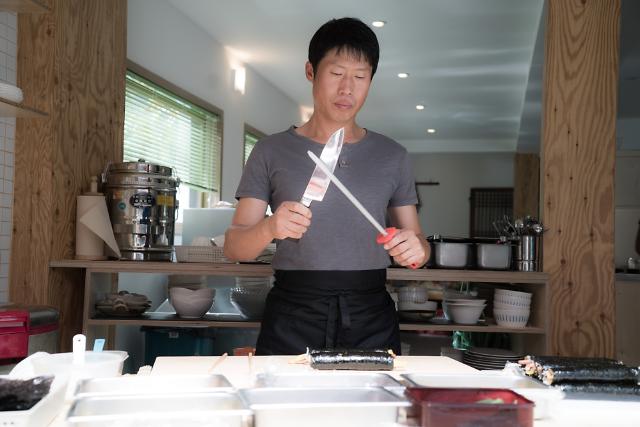
The comedy Luck-Key (2016) stands out for being a remake of a Japanese film – Key of Life (2012) by Kenji Uchida. Most instances of Korean films being based on Japanese IP are adaptations of novels, short stories, and manga with examples including Oldboy (2003), Black House (2007), Perfect Number (2012), Little Forest (2018), Burning (2018) and Be with You (2018).
Luck-Key directed by Lee Gae-byok follows an assassin, Hyung-wook (Yoo Hae-jin) who suffers from amnesia after he slips at a bathhouse and passes out. Meanwhile, Jae-sung (Lee Joon) an unknown actor who has decided to kill himself sees an opportunity in his last moments and switches the locker key. The two then embark on very different lives; Hyung-wook is in poverty, Jae-sung suddenly has access to a penthouse and expensive car.
Its use of humor is reflective of some of the titles that have performed well in Asia including Hwang Dong-hyuk’s Miss Granny (2014)– also a body-swap comedy - that was remade into different films across the region such as 20 Once Again (2015) in China and Taiwan and Sweet 20 (2017) in Indonesia.
Written by Jason Bechervaise
Editted by Shim Eun-ha
- Any copying, republication or redistribution of KOFIC's content is prohibited without prior consent of KOFIC.















